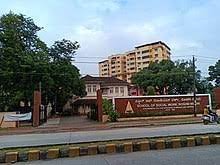Admission to BA Criminology typically requires submitting an application, transcripts, and meeting academic criteria set by the university.
Admission Process for Bachelor of Arts (BA) Criminology
The Bachelor of Arts (BA) Criminology program is designed to provide students with a comprehensive understanding of the complex field of criminology. This interdisciplinary program explores the various facets of crime, criminal behavior, and the criminal justice system. Aspiring criminologists enrolled in this program gain valuable insights into the sociological, psychological, and legal aspects of crime, preparing them for careers in law enforcement, criminal justice, and related fields.
BA Criminology for Admission Process
-
Application Submission: Prospective students can initiate the admission process by submitting their applications through the university's online portal. The application form typically requires personal information, academic history, and relevant documents such as transcripts and recommendation letters.
-
Entrance Examination: Some universities may conduct an entrance examination as part of the admission process. This exam assesses the applicants' aptitude and knowledge in areas relevant to criminology. Performance in the entrance exam often plays a crucial role in the selection process.
-
Interviews and Personal Statements: Shortlisted candidates may be required to participate in interviews to evaluate their motivation, communication skills, and suitability for the program. Additionally, submitting a well-crafted personal statement outlining their interest in criminology and career aspirations is often a crucial component of the admission process.
-
Educational Background: A strong emphasis is placed on the applicant's academic background. Meeting the minimum educational requirements, typically a high school diploma or equivalent, is essential. Relevant coursework or prior experience in social sciences, psychology, or law may be considered advantageous.
-
Selection Criteria: The selection committee evaluates candidates based on a holistic approach, considering academic achievements, test scores, interviews, and other criteria. Demonstrated passion for criminology, ethical awareness, and a commitment to societal well-being are qualities that may enhance an applicant's chances of acceptance.
BA Criminology for Eligibility Criteria
-
Educational Qualifications: Candidates must have completed their high school education or an equivalent qualification. A strong academic background, especially in subjects related to social sciences, may be preferred.
-
Minimum GPA Requirement: Universities often set a minimum grade point average (GPA) that applicants must meet for consideration. This GPA requirement serves as an indicator of the student's academic competence and preparedness for the criminology program.
-
Language Proficiency: Proficiency in the language of instruction (usually English) is essential. Applicants may need to demonstrate their language skills through standardized tests like the TOEFL or IELTS, especially if they are non-native speakers.
-
Relevant Coursework or Experience: While not mandatory, having prior coursework or experience in areas such as sociology, psychology, or law can strengthen an applicant's eligibility. Some universities may give preference to candidates with a demonstrated interest in criminology.
BA Criminology Cutoff 2024
The cutoff for the Bachelor of Arts (BA) Criminology program in 2024 is determined by the university based on factors such as the number of applicants, the overall academic performance of applicants, and the available slots in the program. The cutoff serves as a benchmark, and applicants scoring above this threshold are generally considered for admission.
BA Criminology Scholarship
The Bachelor of Arts (BA) Criminology program may offer scholarships to deserving students. These scholarships can be merit-based, need-based, or a combination of both. Prospective students are encouraged to inquire about available scholarships, eligibility criteria, and application processes directly from the university's financial aid office.
BA Criminology for Application Process
The Application Process for the Bachelor of Arts (BA) Criminology program involves several key steps, ensuring a comprehensive evaluation of candidates. Here is a detailed overview:
-
Preparation: Before initiating the application process, candidates should thoroughly research the program requirements, admission criteria, and deadlines. Gathering all necessary documents, including academic transcripts, recommendation letters, and identification proof, is crucial at this stage.
-
Online Application: Most universities facilitate online applications through their official portals. Candidates need to create an account, fill in personal details, and upload the required documents. The online application typically includes sections on educational background, extracurricular activities, and a personal statement.
-
Submission of Documents: Alongside the application form, candidates are required to submit supporting documents. These commonly include high school transcripts, letters of recommendation, standardized test scores (if applicable), and a well-crafted personal statement outlining their interest in criminology and future goals.
-
Entrance Examination: Some universities may administer an entrance examination to assess the applicants' knowledge and aptitude in areas relevant to criminology. The examination may cover topics such as sociology, psychology, and legal studies. Adequate preparation for this exam is essential for success in the admission process.
-
Interviews: Shortlisted candidates may be invited for interviews, either in person or virtually. The purpose of the interview is to evaluate the applicant's motivation, communication skills, and alignment with the goals of the criminology program. Candidates should be prepared to discuss their academic background, experiences, and reasons for choosing criminology as a field of study.
-
Personal Statement: A compelling personal statement is a crucial component of the application process. Applicants should use this opportunity to articulate their passion for criminology, detailing relevant experiences, academic achievements, and future aspirations. The personal statement allows the admissions committee to assess the candidate's suitability for the program.
-
Educational Background: Meeting the minimum educational requirements is fundamental to the application process. Candidates must ensure that they possess a high school diploma or equivalent qualification. Academic transcripts should reflect a strong foundation in subjects related to social sciences.
-
Language Proficiency Test: For non-native English speakers, demonstrating proficiency in the language of instruction (usually English) is essential. This requirement is typically fulfilled through standardized tests such as the TOEFL or IELTS. Satisfactory scores in these tests strengthen the application.
-
Application Fee: Some universities require the payment of an application fee to cover administrative costs. Candidates should check the specific fee structure and payment methods outlined by the university. Fee waivers may be available for eligible candidates facing financial constraints.
-
Submission Deadline: Adherence to submission deadlines is critical. Late applications may not be considered, so candidates should plan their application timeline carefully. It is advisable to apply well before the deadline to avoid any unforeseen issues.
 3 Years
3 Years
 Under Graduate
Under Graduate
 Arts
Arts
 Full Time
Full Time
















 back
back

